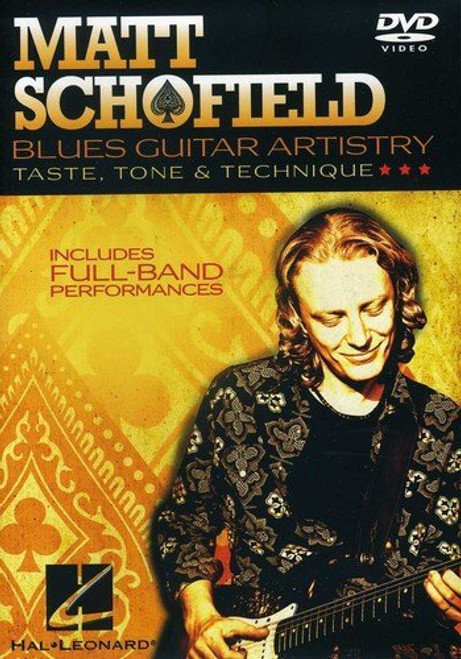Product Description
Mann has absorbed so many guitar styles that he can change moods on a dime, weaving lyrical single string lines and chord harmonies that can take his tunes across the musical divides between genres. - Acoustic Guitar Magazine. Among guitarists and critics, Woody Mann is considered a modern master. While the blues are his touchstone, he seems to draw inspiration from every direction, blending a myriad of influences with ease and grace. Pioneering guitar legend John Fahey said it well: "You can hear classical, jazz and blues approaches somehow converging into a single sparkling sound - a sound completely his own. Woody takes a fresh approach to his blues re-creations and his own compositions defy category. If there was a category simply called 'great music' Woody's music would belong there." In "Songs From the Blues", Woody showcases his songs that are inspired by his love for the country blues and early jazz styles but brings the past up to the present with his original guitar style and contemporary songwriting. Mann's wizardry on the fretboard is matched by his ability to convey deep feelings with his songs - creating moods that incite, delight, or simply soothe. Mann blurs the lines between jazz, blues, classical, and world music, creating his own sound in the process. Attempts to categorize his music simply miss the point. This is brilliant playing that demands to be heard. - Sing Out Magazine. Woody took his first musical schooling as a teenager in the living room of Reverend Gary Davis, the legendary blues, gospel and ragtime guitarist. He soon went on to perform and record with blues masters Son House and Bukka White, British great Jo Anne Kelly and fingerstyle innovator John Fahey while studying classical music at the Juilliard School and jazz improvisation with the legendary pianist Lennie Tristano. Since those early years, he has toured throughout the world, recorded extensively, performed with blues and jazz legends, conducted workshops in a dozen countries, and schooled countless guitarists through his many books and DVDs. He has become one of the world's renowned guitar masters with his own contemporary improvisational style. Every now and then, you hear a guitarist whose sound is completely his own and whose music flirts with several styles, never resting for very long with just one. Woody Mann is an artist who seems to have internalized many different genres and combined them in a way that is more than the sum of its parts. What is remarkable is how he can draw from several styles and techniques within a single song and have them blend without the feeling of inconsistency. - Musician Magazine DVD is region 0, playable worldwide.
Review
The Guitar Artistry Of Woody Mann is a great portrait of a superlative musician and performer, composer, arranger, producer, filmmaker, author and teacher. It's the latest release from a fascinating series in which the musicians talk about their life and times and perform their material.
It is difficult to categorize Mann's wide-ranging musical style but the blues have played an important role, and over the years he has performed with many of the older legends such as Son House and Bukka White, as well as with some of the most creative musicians of his own generation, including Jo Ann Kelly, John Renbourn and John Fahey. He speaks with enthusiasm of many of the blues musicians who have inspired his playing, including Skip James, Blind Blake, Lonnie Johnson, Eddie Lang and, of course, the guitar master Rev. Gary Davis. Mann first took lessons from Davis when he was just a young teenager, and it is intriguing to hear his anecdotes of his times with the great man. Davis encouraged Mann to be himself and talked of the importance of spontaneity and improvisation in his music. Later Mann studied with the great jazz pianist, composer and arranger Lennie Tristano, who proved to be a strict yet encouraging teacher who, like Davis, emphasized the importance of impro
Guitar Artistry of Woody Mann Songs From Blues
Was:
$93.88
Now:
$46.94
- SKU:
- R4211
- UPC:
- 011671311203
- Condition:
- New
- Availability:
- Free Shipping from the USA. Estimated 2-4 days delivery.







